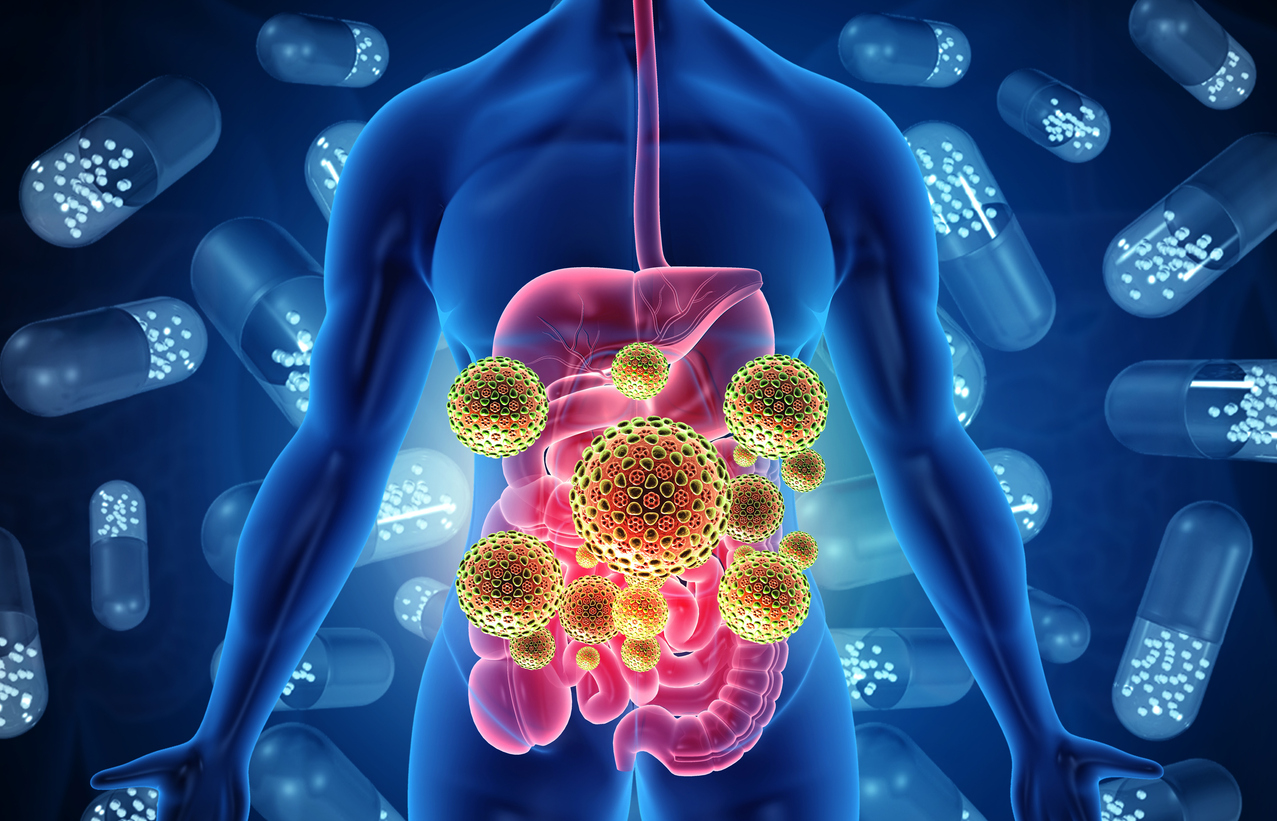
In recent years, research has increasingly shown that gut health plays a significant role in overall wellness. The gut, often referred to as the “second brain,” influences not only digestion but also immune function, mood, mental clarity, and even weight management. Understanding the connection between gut health and overall wellness can help you make informed decisions about your diet, lifestyle, and health practices. In this article, we’ll explore how gut health affects the body and ways to improve it for optimal well-being.
What Is Gut Health?
Gut health refers to the balance of microorganisms, known as the gut microbiome, in your digestive system. This complex ecosystem of bacteria, viruses, fungi, and other microbes performs essential functions, including breaking down food, absorbing nutrients, and protecting against harmful pathogens. A healthy gut microbiome is diverse and balanced, allowing your body to function efficiently.
How Gut Health Impacts Overall Wellness
- Digestive Health
Your gut is responsible for breaking down the food you eat, absorbing nutrients, and eliminating waste. When the gut is healthy, these processes run smoothly, leading to regular bowel movements, fewer digestive issues, and better nutrient absorption. However, an imbalanced gut can lead to digestive problems such as bloating, gas, constipation, diarrhea, and food intolerances.
Tip for better digestion:
- Incorporate more fiber-rich foods, like fruits, vegetables, whole grains, and legumes, to promote healthy digestion.
- Immune Function
About 70% of your immune system is located in the gut. The gut microbiome helps regulate immune responses by protecting the body from harmful pathogens and signaling the immune system when to activate. A healthy gut strengthens your immune defenses, while an imbalanced gut can lead to increased inflammation, making you more susceptible to infections and illnesses.
Boost immune health:
- Eat probiotic-rich foods like yogurt, kefir, sauerkraut, and kimchi to support a healthy gut and immune function.
- Mental Health and Mood
The gut-brain connection is a growing area of research, and it’s becoming clear that your gut health can significantly impact your mental health. The gut produces neurotransmitters like serotonin and dopamine, which regulate mood and emotional well-being. An unhealthy gut can lead to imbalances in these neurotransmitters, contributing to anxiety, depression, and mood swings.
Tip for a balanced mood:
- Add prebiotic foods (such as garlic, onions, and bananas) to your diet to feed the good bacteria in your gut and support the gut-brain axis.
- Weight Management
Your gut microbiome also plays a role in how your body processes food and stores fat. A diverse microbiome can help regulate metabolism and control appetite, while an unhealthy gut can contribute to weight gain, obesity, and difficulty losing weight. Gut bacteria influence how much energy you absorb from food, as well as how hormones related to hunger and fullness are regulated.
Improve gut health for weight management:
- Focus on a varied diet with plenty of plant-based foods to maintain a balanced gut microbiome and support healthy weight management.
- Skin Health
Gut health is closely linked to skin health, with imbalances in the gut microbiome potentially leading to skin conditions like acne, eczema, and rosacea. An unhealthy gut can increase inflammation in the body, which may manifest as skin issues. Additionally, poor digestion and nutrient absorption can deprive the skin of essential vitamins and minerals.
Support glowing skin:
- Incorporate omega-3 fatty acids (found in fish, flaxseeds, and walnuts) to reduce inflammation and promote a healthy gut-skin connection.
Signs of Poor Gut Health
Understanding the signs of an unhealthy gut can help you take proactive steps to improve it. Some common indicators of poor gut health include:
- Frequent digestive discomfort (bloating, gas, constipation, or diarrhea)
- Unexplained fatigue or low energy
- Skin issues (acne, rashes, eczema)
- Food intolerances or sensitivities
- Frequent infections or a weakened immune system
- Mood swings, anxiety, or depression
How to Improve Gut Health
- Eat a Diverse Diet
A varied diet rich in whole, plant-based foods supports a diverse and healthy gut microbiome. Different foods provide different nutrients and types of fiber, which feed various beneficial bacteria in your gut. Aim for a colorful plate filled with fruits, vegetables, legumes, whole grains, and healthy fats.
- Increase Fiber Intake
Fiber is essential for gut health because it feeds the beneficial bacteria in your digestive tract. Soluble fiber, found in oats, beans, and some fruits, helps bulk up stool and promote regularity, while insoluble fiber, found in whole grains and vegetables, supports overall digestive function.
- Add Probiotic and Prebiotic Foods
Probiotic foods contain live beneficial bacteria that can help restore the balance of your gut microbiome. Common probiotic foods include yogurt, kefir, kimchi, sauerkraut, and miso. Prebiotic foods, such as garlic, onions, and leeks, provide the necessary fuel for probiotics to thrive in your gut.
- Stay Hydrated
Water is essential for the digestion and absorption of nutrients. Staying hydrated also helps promote a healthy mucosal lining in the intestines, supporting the function of good bacteria in your gut. Make sure to drink enough water throughout the day to keep your digestive system working efficiently.
- Limit Sugar and Processed Foods
Diets high in processed foods, refined sugars, and unhealthy fats can negatively affect gut health by promoting the growth of harmful bacteria and increasing inflammation. Reducing sugar and processed food intake can help restore balance to your gut and improve overall health.
- Manage Stress
Chronic stress can disrupt the gut microbiome and lead to digestive issues, as well as increased inflammation throughout the body. Incorporate stress-management techniques into your daily routine, such as mindfulness meditation, deep breathing exercises, yoga, or regular physical activity, to protect your gut and overall health.
- Exercise Regularly
Physical activity is beneficial for both your gut and overall wellness. Regular exercise promotes healthy digestion, helps manage weight, and reduces inflammation, all of which contribute to a balanced gut microbiome. Aim for at least 30 minutes of moderate exercise most days of the week to keep your gut healthy.
Your gut health is intricately connected to various aspects of your overall well-being, from digestion and immune function to mental health and weight management. By paying attention to your diet, lifestyle, and stress levels, you can improve your gut health and, in turn, enhance your physical and emotional well-being. Incorporating gut-friendly foods, staying hydrated, and making small, sustainable changes can make a big difference in your overall wellness.







